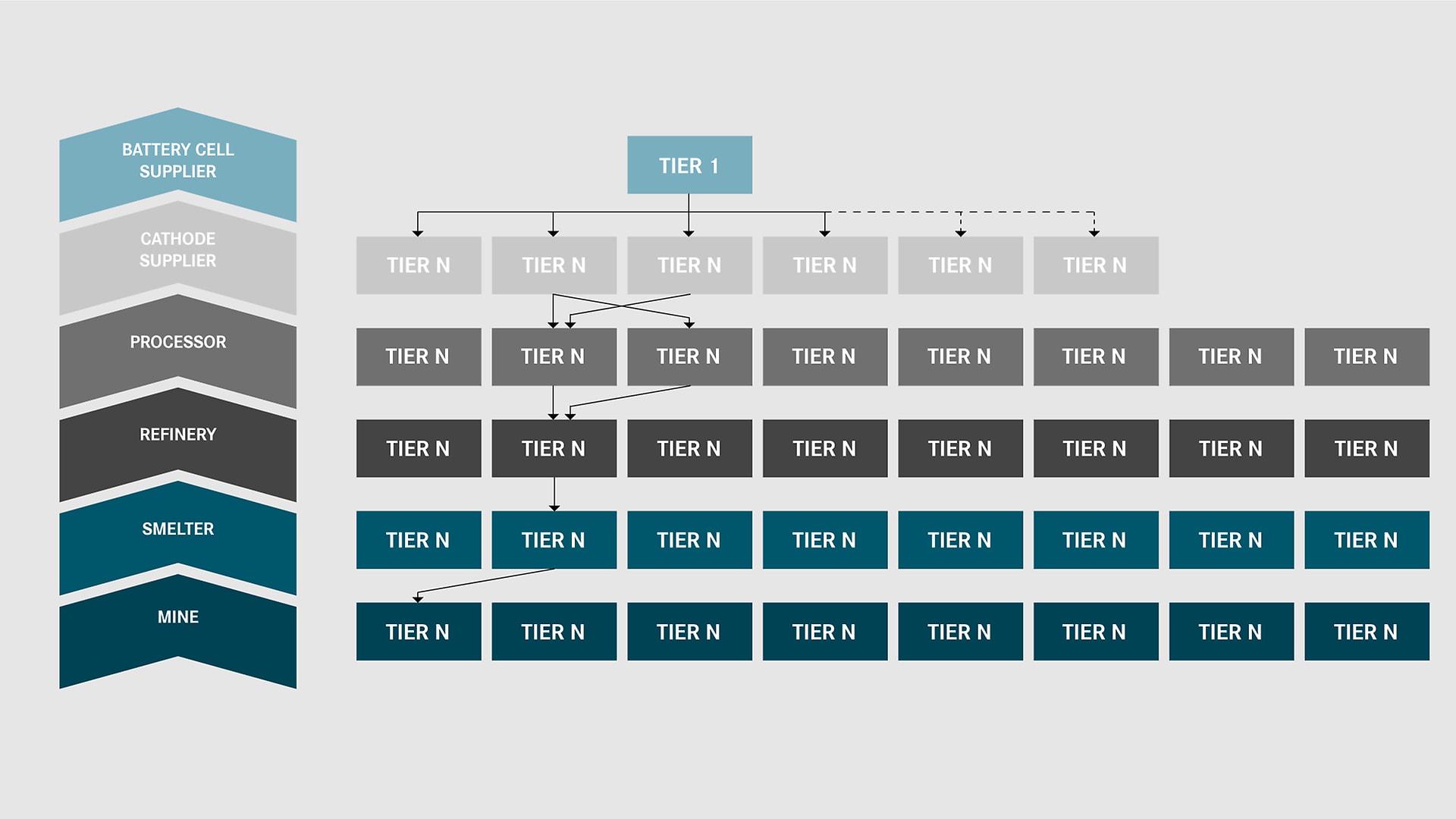Our vehicles generally contain several thousand parts and components. Our supply chains are accordingly complex. They comprise approximately 40,000 direct suppliers, which are mainly based in Europe, North America, and Asia. These in turn work with many sub-suppliers. Sometimes, a single supply chain has up to seven or eight sub-levels. At one stage, there may be up to 20 sub-suppliers. And with every innovation and every market development a supply chain will dynamically evolve.
We use a variety of measures and concepts for the sustainable management of our supply chain. They include screening our suppliers, risk-based due diligence analyses and sustainability training courses for suppliers. Through these measures we enforce compliance with social standards and environmental requirements and achieve greater transparency in our supply chain.
We can only achieve the goal of a responsible supply chain together with our suppliers. Since there is no way of enforcing legislation, it is impossible to exert influence on the entire supply chain by legal means alone. Moreover, we do not purchase many raw materials directly, but in processed form or as part of components, e.g. in battery cells. We therefore work closely with our direct suppliers and oblige them to pass on our Responsible Sourcing Standards within the supply chain. The Responsible Sourcing Standards are therefore an important instrument for implementing the Mercedes-Benz Group’s ambitious goals in the complex supply chains. They form the guidelines for sustainable supply chain management and are the central contractual document for sustainability requirements towards suppliers.
,xPosition=0,yPosition=0.5)

,xPosition=0.5,yPosition=0)
,xPosition=0.5,yPosition=0)
,xPosition=0,yPosition=0)
,xPosition=0.5,yPosition=0)
,xPosition=1.0,yPosition=0)
,xPosition=0.5,yPosition=0)
,xPosition=0.5,yPosition=0)